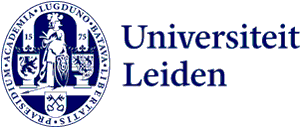
PhD candidate Alex Reuneker’s research: What do we mean when we use ‘if’?
‘If it rains later, then I’ll take the car.’ In order to reason, we use sentences containing ‘if’ every single day. But how does that work exactly in the Dutch language? Alex Reuneker wrote his 628 page dissertation on the subject. Ceremony on 26 January.
‘Conditional sentences can be divided into different categories,’ explains Reuneker. ‘They often express a causal link, in the following sentence for example: “If you press this button, then the lights will turn on.” The pressing of the button causes the lights to turn on. There are other types of links as well. Another example is: “If you’re hungry, the cookies are on the table.” It’d be great if cookies were to appear whenever you’re feeling peckish, but that is obviously not what the sentence implies.’
More than twenty types of if-clauses
Literature on the subject describes dozens of these types of causal links. ‘You may not have expected it,’ claims Reuneker, ‘but there’s tons of literature on the subject of conditional sentences. The research mostly focuses on conditional sentences in English or just conditional sentences in general.’
Reuneker, on the other hand, used a Dutch corpus with ‘natural language’: sentences that have been used or written in real life. On that basis, he wants to map out what these if-clauses look like, grammatically speaking, and what grammatical elements could predict to which category a sentence belongs. The result? Neither students nor an algorithm were able to uniformly assign sentences from the corpus to prototypes taken from literature on the subject. ‘When looking at the sentence “if you’re hungry, the cookies are on the table,” something is different about the word order,’ explains Reuneker. ‘The cookies are on the table’ has the word order of a main clause instead of a subordinate clause and there’s no ‘then’ in the sentence. ‘With other types of if-clauses it would look something like “If your stomach is rumbling, then you’re hungry”.’ Where this sentence contains grammatical signals, it makes no difference for lots of other sentences. ‘The given information is insufficient to predict what type of sentence it is.’
Less or just different tools?
Literature that focuses on discerning different types appears to link form and meaning, which is impossible or very difficult to find in data taken from Reuneker’s research. ‘It’s problematic if it’s nearly impossible to project scientific literature on language data,’ he claims. ‘It’s possible that Dutch language users just have less tools to help them interpret a sentence in comparison to English language users. English almost always utilises ‘will’ when using if-clauses. That’s a clear indicator of the type of link that’s expressed, but the Dutch ‘zullen’ does not work similarly: it’s a verb we don’t use as much in future tenses.’ This means that Dutch acts differently from English. Would this difference (also) express itself between literature and practical use? Another way to explain Reunekers results is that natural language behaves in a different way than text in books, in which examples are often imaginary.
It’s clear that more research is necessary. If it’s up to Reuneker, he wants to be a part of it. ‘My mother loves asking me: “Why is this important?” But we use these kinds of sentences every single day. That grabbed me most. It comes so close to our way of thinking.’
